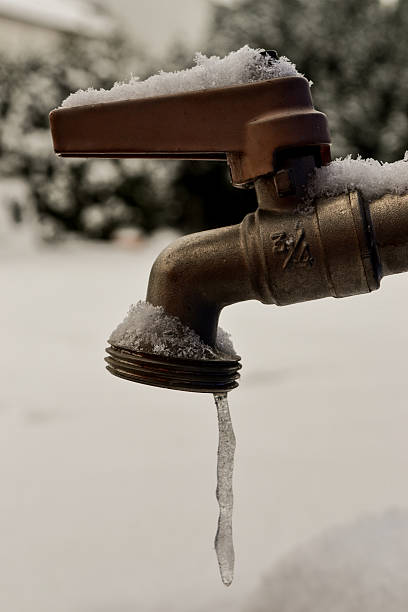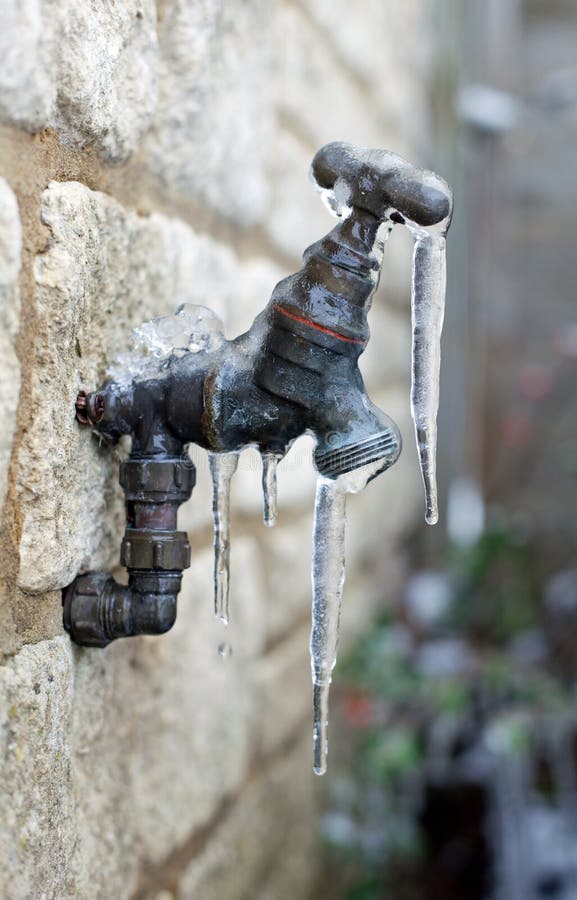Critical Approaches for Preventing Frozen Pipes in Winter
Critical Approaches for Preventing Frozen Pipes in Winter
Blog Article
We've stumbled on the article involving How to Prevent Your Pipes From Freezing down the page on the web and reckoned it made perfect sense to write about it with you on this site.

Cold weather can damage your plumbing, especially by freezing pipes. Right here's exactly how to avoid it from occurring and what to do if it does.
Introduction
As temperatures decline, the threat of icy pipes increases, possibly bring about expensive repairs and water damages. Understanding how to avoid frozen pipelines is crucial for home owners in cool climates.
Recognizing Frozen Pipelines
What creates pipes to ice up?
Pipes freeze when revealed to temperatures listed below 32 ° F (0 ° C) for extended durations. As water inside the pipelines freezes, it increases, putting pressure on the pipe wall surfaces and possibly causing them to break.
Dangers and problems
Icy pipes can bring about supply of water disturbances, residential or commercial property damage, and costly fixings. Burst pipes can flood homes and cause comprehensive architectural damages.
Indicators of Frozen Piping
Recognizing icy pipelines early can stop them from breaking.
Just how to recognize icy pipes
Try to find decreased water flow from taps, unusual odors or noises from pipelines, and noticeable frost on subjected pipelines.
Prevention Tips
Insulating vulnerable pipes
Cover pipelines in insulation sleeves or use warmth tape to secure them from freezing temperatures. Concentrate on pipes in unheated or external areas of the home.
Home heating methods
Maintain interior rooms effectively heated, particularly locations with plumbing. Open up closet doors to enable cozy air to circulate around pipes under sinks.
Shielding Outdoor Plumbing
Yard tubes and outdoor faucets
Detach and drain yard tubes prior to winter. Set up frost-proof spigots or cover outside taps with shielded caps.
What to Do If Your Pipelines Freeze
Immediate activities to take
If you believe icy pipes, maintain faucets available to soothe pressure as the ice melts. Use a hairdryer or towels soaked in warm water to thaw pipelines slowly.
Long-Term Solutions
Structural modifications
Think about rerouting pipes away from exterior walls or unheated areas. Add extra insulation to attics, basements, and crawl spaces.
Updating insulation
Purchase high-grade insulation for pipes, attic rooms, and walls. Proper insulation helps maintain regular temperatures and minimizes the threat of frozen pipelines.
Final thought
Stopping icy pipelines needs proactive measures and fast reactions. By comprehending the reasons, indicators, and preventive measures, homeowners can secure their plumbing during winter.
Helpful Tips to Prevent Frozen Pipes this Winter
UNDERSTANDING THE BASICS: WHY PIPES FREEZE AND WHY IT’S A PROBLEM
Water freezing inside pipes is common during the winter months, but understanding why pipes freeze, and the potential problems it can cause is crucial in preventing such incidents. This section will delve into the basics of why pipes freeze and the associated problems that may arise.
THE SCIENCE BEHIND FROZEN PIPES
When water reaches freezing temperatures, it undergoes a physical transformation and solidifies into ice. This expansion of water as it freezes is the primary reason pipes can burst. As the water inside the pipe freezes, it expands, creating immense pressure on the walls. If the pressure becomes too great, the pipe can crack or rupture, leading to leaks and water damage.
FACTORS THAT CONTRIBUTE TO PIPE FREEZING
Low Temperatures: Extremely cold weather, especially below freezing, increases the risk of pipes freezing. Uninsulated or Poorly Insulated Pipes: Pipes located in unheated areas, such as basements, crawl spaces, or attics, are more prone to freezing. Insufficient insulation or lack of insulation altogether exacerbates the problem. Exterior Wall Exposure: Pipes running along exterior walls are susceptible to freezing as they encounter colder temperatures outside. Lack of Heating or Temperature Regulation: Inadequate heating or inconsistent temperature control in your home can contribute to frozen pipes. PROBLEMS CAUSED BY FROZEN PIPES
- Pipe Bursting: As mentioned earlier, the expansion of water as it freezes can cause pipes to burst, resulting in significant water damage.
- Water Damage: When pipes burst, it can lead to flooding and water damage to your property, including walls, ceilings, flooring, and personal belongings.
- Structural Damage: Prolonged exposure to water from burst pipes can compromise the structural integrity of your home, leading to costly repairs.
- Mold and Mildew Growth: Excess moisture from water damage can create a favorable environment for mold and mildew growth, posing health risks to occupants.
- Disrupted Water Supply: Frozen pipes can also result in a complete or partial loss of water supply until the issue is resolved.
WHY CERTAIN PIPES ARE MORE PRONE TO FREEZING
- Location: Pipes located in unheated or poorly insulated areas, such as basements, crawl spaces, attics, or exterior walls, are at higher risk of freezing.
- Exterior Pipes: Outdoor pipes, such as those used for irrigation or exposed plumbing, are particularly vulnerable to freezing as they are directly exposed to the elements.
- Supply Lines: Pipes that carry water from the main water supply into your home, including the main water line, are critical to protect as freezing in these lines can affect your entire plumbing system.
- Underground Pipes: Pipes buried underground, such as those connected to sprinkler systems or outdoor faucets, can be susceptible to freezing if not properly insulated.
https://busybusy.com/blog/helpful-tips-to-prevent-frozen-pipes-this-winter/

I ran across that content on How to Prevent Your Pipes From Freezing when browsing the web. Don't hesitate to take the time to share this blog posting if you enjoyed it. Thanks a lot for going through it.
Get Quote Report this page